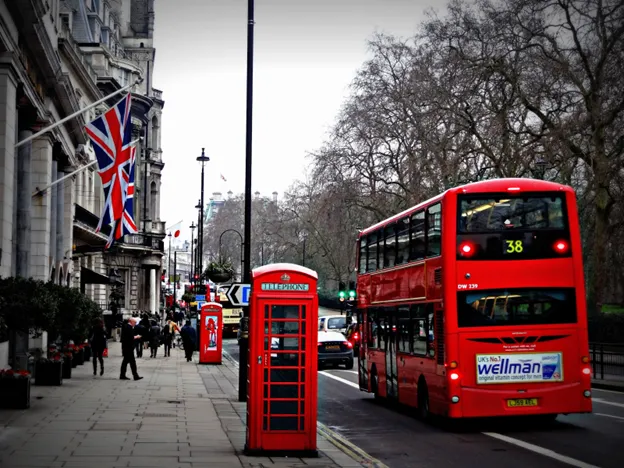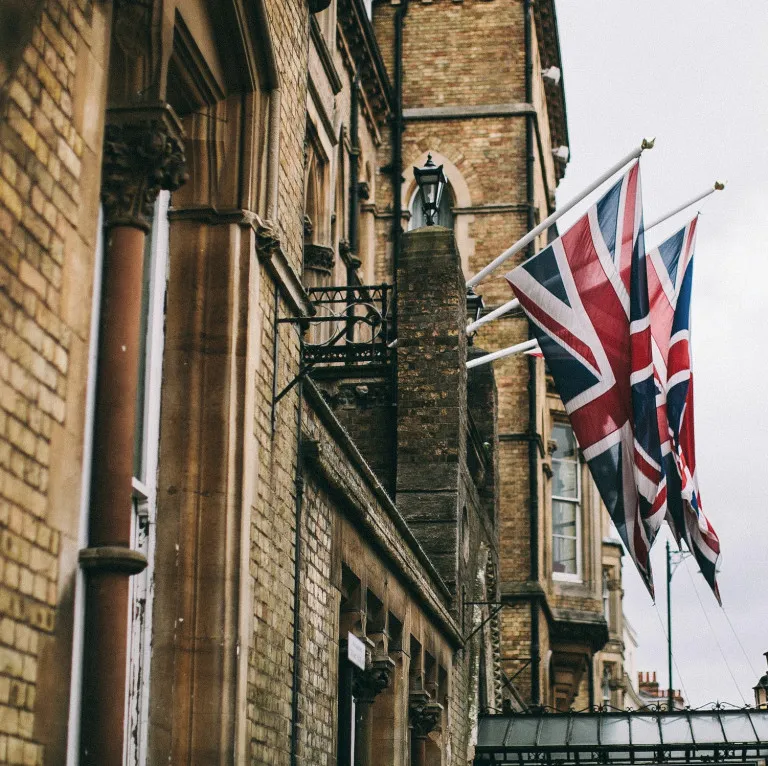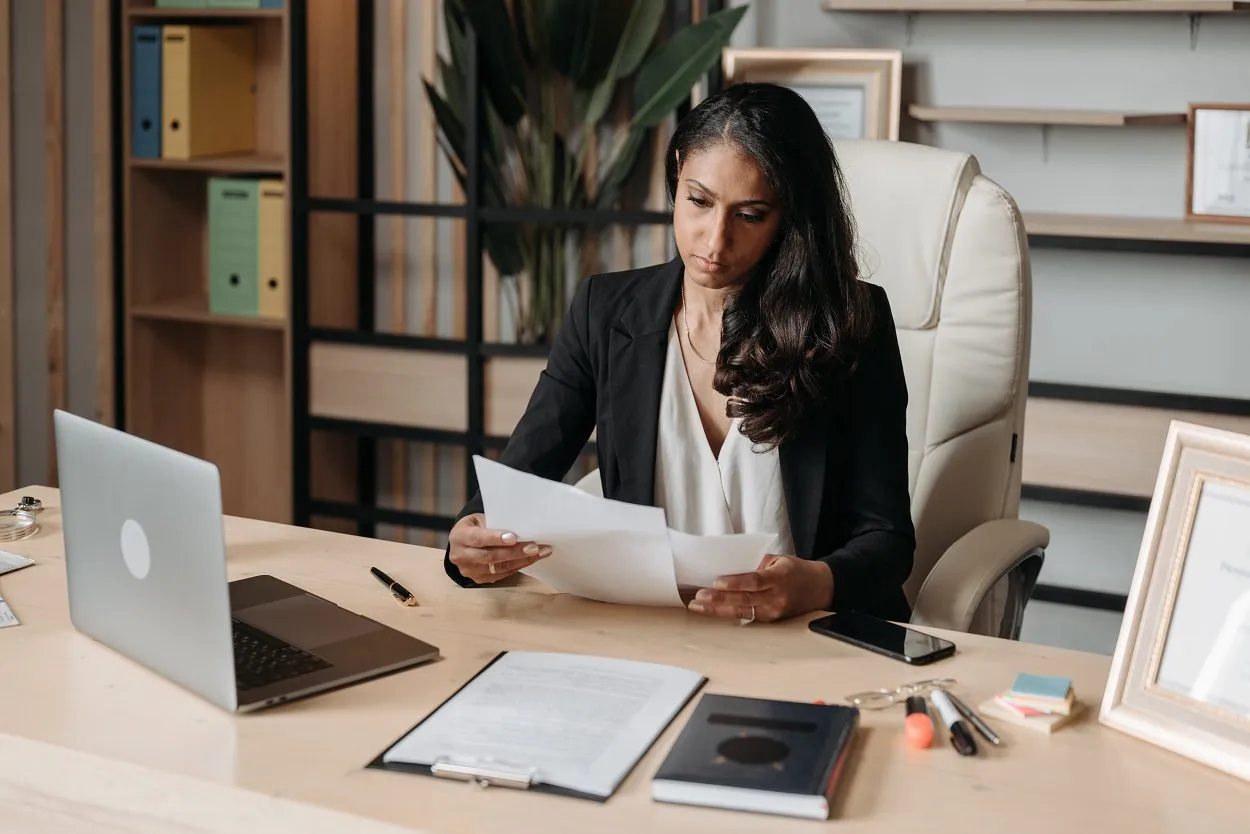Moving to Lithuania from the UK
If you wish to live in Lithuania for a determined or undetermined amount of time, you need to be aware of the legal procedures that must be undertaken. This guide provides sufficient information in order to get you familiarized with the legal facets of moving to Lithuania from the UK. Of course, you can always contact us by dialling 0333 305 9375 for more immediate assistance or advice.
Read our 1001 reviews
How to emigrate to Lithuania
First, it’s important to point out that if you are a British national travelling to Lithuania from the UK, you are not obliged to provide proof of vaccination or recovery from COVID-19, nor should you have to undergo COVID-19 tests. However, you may be required to prove your vaccination status if you’re entering Lithuania from another country. You can always check for updates in this regard by visiting the National Public Health Centre page.
That noted, as a UK citizen, you’re allowed to visit the country without any visa requirement for 90 days in a 180-day period because Lithuania is a Schengen country. Any visit to other countries in the Schengen area is counted towards your 90-day quota. Also, note that this visit must be for short term tourism or a short business trip.
If you intend to stay in Lithuania for longer than 90 days or you want to move permanently to Lithuania, you must apply for a residence permit. There are two major types of residence permits, according to their time limit:
- Temporary residence permit
- Permanent residence permit
Any permit procedure is processed electronically through the Lithuanian Migration Information System (MIGRIS) wherein you must attach digital copies of the documentation requested, depending on the type of permit you require.
Overview of Lithuanian residence permits and visas
The residence permits mandated by the Lithuanian immigration bureau are not very different from those of other Schengen Area countries.
In general, temporary residence permits are granted for the following reasons:
- Work or legal business activities
- Science
- Family reunification
UK nationals who lived in Lithuania before 1 January 2021 are protected under the Withdrawal Agreement. This means that they won’t get affected by the UK’s decision to leave the EU, provided that they meet certain criteria. People who fall under this category are advised to get a “lei Dimas gyventi“, a document that proves they’re entitled to remain or enter Lithuania.
Getting a permit in Lithuania as a UK citizen is not as hard as it is for nationals of other third countries (as in, other non-members of the EU, EEA/EFTA, or the Schengen Area). In fact, as we’ll see shortly, in specific cases, people with UK citizenship are granted a longer stay, owing to the generally good relations between both countries.

Residence permits for work
If you’re moving to Lithuania from the UK as a British citizen, you can get a permit granted for a period of 3 years if:
- You’re under an employment contract
- You’re a shareholder or manager of a company that operates in Lithuania and you intend to work for that company.
- You engage in lawful activities, including self-employment.
Upon your request submission, you may be granted a multiplex national visa for a period that doesn’t exceed 5 months. This applies both for first issuance as well as permit changes. You would need to show that you are legally in Lithuania at the moment of presenting your petition.
You would have to go through MIGRIS (see above) to upload all the relevant documentation.
If you’re under an employment contract:
If you’re under an employment contract (or intend to be), you should provide either one of these documents:
- The employment contract.
- The undertaking signed by the employer.
If you’re a member or manager of a private entity that operates in Lithuania
Provided that your purpose for staying in Lithuania is to work for foreign companies or entities, you may be asked to submit the following:
- Your employment contract.
- Documents filed to the SE Centre of Registers.
- If the company started engaging legally in Lithuania less than one year before the request, you’ll have to upload various other documents, including a proof of address, contracts showing the commercial activities of the company, licenses, financial statements, and other pertinent records revealing the entity’s economic operations.
If you work (or have the intention of working) in a legitimate activity, including self-employment, or a regulated profession
In this scenario, you’ll be required to hand over documents that evidence your intention to engage in a specific activity such as a sport, a performance, or a religious endeavor. Depending on the specific profession, you might need to show other certificates or accreditation.
On the MIGRIS page, you will find the definition of individual activity, as well as a list of regulated professions. For regulated professions, you’ll have to file a certification of compliance with the legal acts of the Republic of Lithuania in order to operate as a professional.
Other documentation and fees
Apart from the requisites outlined above, you’ll need to submit the basic documentation disclosed at the beginning. However, the health insurance requirement can be omitted if your employer agrees to pay compulsory health insurance contributions for you.
The submission fee for these requests is €120 unless you opt for an emergency procedure, which would cost you €240.
Study visas and permits
Visa for college /university students
College and university students can get a national multiple-entry visa when they’re admitted to a higher education institution operating in Lithuania. Apart from the basic documents enumerated above, the higher education institution (college or university) must upload a mediation letter through MIGRIS, and you must pay the 120 euros fee.
Visa for students under student exchange programs
To be granted this visa, as was the case with college/university students, you need a mediation letter sent by the higher education institution in Lithuania that is enrolled in the student exchange program with the foreign institution.
The consular fee for this service amounts to 120 euros; if it’s requested through a foreign Lithuanian Visa Service or an external provider. If the visa petition is filed on Lithuanian soil, you’re exempted from the state fee.
Residence permits and national visas for science
This is basically a visa issued for the purposes of studying, teaching, or enrolling in scientific research. The visa is granted for a period of 1 year, though, in some cases, you’re entitled to a national multiple-entry visa, which will allow you to get another visa if more than 180 days have passed since the previous one was issued (same when the total validity period of all the visas you held has transpired)
If you plan on staying longer than the term stipulated in the visa, you should file a temporary residence permit request. The permits are granted for 1 year in the case of students, and 2 years in the case of researchers or teachers. These permits can be renewed.
In order to be able to stay in Lithuania while the permit request is reviewed, it should be filed 2-4 months before the visa expiry date in the event of national visas given for a total of 1 year.
Visa for lecturers/teachers and researchers
Lecturers or researchers under an employment contract or a copyright agreement with science and studies institutions in Lithuania can get a visa, same with those who are summoned for joint government programs. This also applies to the concurrent family members of the main applicants.
If you fall under these categories, you’ll need to electronically upload the mediation letter from the institution or organization in question, as well as the employment contract or copyright agreement when applicable.
The type of visa you may obtain depends on the specific situation. In the case of an employment contract or a joint government program, you’ll get a multiple-entry visa. Meanwhile, under a copyright agreement, you’re given an ordinary national visa.
No fees are charged for these types of visas unless you are summoned to pursue the implementation of joint government programs, in which case you’ll need to provide evidence that you’re exempt, or else, you’ll have to pay a 120 euros fee.
Family visas and permits
Family members of the host visa or permit holder can enter Lithuania and apply for a temporary residence permit, in which case it should not exceed the period granted to the main applicant. Visas function in a similar manner. If a spouse travels to Lithuania with a national visa, the other spouse can obtain a national visa for the same period.
To obtain the visa or permit, the family member has to provide a document accrediting the bond and a mediation letter submitted by the host legal entity or person.
In the case of British nationals, the main visa or permit holder can bring the spouse, dependent minor children, and parents who have been dependent for at least one year and have no one else to care for them.
For more detailed information on the types of permits and visas that you may apply for, call our expert immigration lawyers today on 0333 305 9375.
Required documents for visa and permit applications
The documents normally requested for processing visa and permit requests are:
- A valid travel document (issued in the last ten years and exceeding the validity of the visa or permit for at least three months).
- Evidence that you have sufficient funds to sustain yourself during the stay (with a monthly average equivalent to Lithuania’s minimum monthly wage or 0.5 minimum monthly wage in the case of students), as well as proof that you have enough funds to return to your home country or to go to a country you have the right to travel to when the permit expires.
- An undertaking that you will report your residence address (for resident permits mostly).
- An affirmation that you were never convicted, or certificates regarding conviction/non-conviction issued by the countries you lived in during the 2 years prior to moving to Lithuania. You might need to get an apostille on those documents, and they should be issued no sooner than 6 months prior to the permit request date.
Health insurance contract covering emergency medical care and other expenses that may transpire when returning to the country of origin due to health-related reasons (this may not be compulsory in some scenarios.)
You may also need to submit additional documentation depending on the type of visa or permit you apply for.
Moving to Lithuania from the UK Permanently – Permanent Residence Permit
In general, you might obtain a permanent residence permit after it has been shown that you’ve been legally established in the country for a period of five years, or lived in an EU member state for 5 years (provided that 2 of those years were spent in Lithuania without interruption).
Interruption, for the purposes of a permanent residence permit request, is verified whenever you’ve remained abroad for more than 6 months in succession or exceeded 10 months in total during a 5-year period.
The benefits of holding a permanent residence permit in Lithuania as a UK citizen can be summarized as follows:
- You have the ability to leave the country for a longer time than what’s allowed for holders of temporary permits. You could reside in a non-EU country for a maximum of 12 months and in an EU member state for 6 years.
- You have the right to remain in Lithuania for a period of 5 consecutive years (renewable) and possibly opt for citizenship after a second 5-year period.
- It enables you to vote in local municipal elections, as well as some UK elections.
- You have access to free medical care.
What Should We Expect When Moving to Lithuania from the UK?
Overview
Baltic states tend to be intimidating for those who are accustomed to living in Western European countries like the UK. Lithuania is no exception. However, you might be capable of reaping some of the rewards of living there, while also coping with some of the drawbacks.
Lithuania is touted as being one of the cheapest countries in Europe, while conversely suffering from low-income levels in comparison, as well as beautiful cities including the Capital, Vilnius.
We’ll be taking a brief overview of some of the most important aspects you ought to consider when deciding to move to Lithuania permanently:
Birth and Marriage
A child born in Lithuania to a UK parent has the right to obtain a British passport and can be registered with UK authorities and Lithuanian authorities simultaneously.
For marriages celebrated in Lithuania, you may have to get hold of UK-issued records, such as a certificate of no impediment (CNI). The British consulate in Lithuania is capable of providing notarial services wherein local notaries are not available, as well as facilitating pertinent documentation.
Voting
You’re not allowed to vote in Lithuanian national elections as a UK citizen residing in Lithuania. After acquiring permanent resident status, you can legally vote in local elections.
Healthcare
The healthcare system in Lithuania is deemed as one of the most affordable on the continent and provides free medical care and ambulatory services to citizens and permanent residents.
The PSD (Privalomasis Sveikatos Draudimas) is the national health insurance scheme that’s funded by contributions from Lithuanian residents. There are also Territorial Health Insurance Funds in each region (Aukstaitiia, Zemaitija, Dzukija, Suvalkija, and Mazoji Lietuva)
To access the Lithuanian healthcare system, UK citizens can take the following routes:
- Make payments into the national health insurance scheme, which requires registration as a resident. If under an employment contract, the employer should automatically submit the registration request for you.
- Use a European Health Insurance Card (EHIC) or a UK Global Health Insurance Card (GHIC) during temporal visits.
- File an S1 form (UK-issued) with an insurance fund.
Pensions
You are entitled to claim your UK State Pension, as well as your Lithuanian pension if you have been employed in Lithuania. To qualify for the UK State Pension abroad, you need to have made the necessary monetary contributions to the UK National Insurance.
How do I know which visa or immigration route to take?
With the new regulations resulting from Brexit, UK citizens must be mindful of the routes they are expected to take when moving to Lithuania, whether permanently or temporarily. If you are unsure what route is best for your personal circumstances, it is recommended that you reach out to immigration lawyers with expertise in navigating the UK and Lithuania immigration systems.
At IAS, our expert immigration lawyers have years of experience helping UK citizens and residents visit and move to other countries, including Lithuania. We can help you by considering what you wish to do in Lithuania, reviewing your eligibility for residency under the withdrawal agreement and also eligibility for visas that allow the activities you wish to do. Based on our analysis, we will advise you on the best route.
Also, we can assist with applying for the right immigration permit or visa under our application package. Here, we will fill out the required forms to give you the best chances of success. We will also advise on the best-supporting documents and liaise with the Lithuanian immigration authorities on your behalf.
For more information on how we can help you move to the UK from Lithuania, immediate assistance, or professional advice, please reach out to us today. You can call us on 0333 305 9375 or fill out our contact form.
Table of Contents
Table of Contents will appear here.Table of Contents
Table of Contents will appear here.Legal Disclaimer
The information provided is for general informational purposes only and does not constitute legal advice. While we make every effort to ensure accuracy, the law may change, and the information may not reflect the most current legal developments. No warranty is given regarding the accuracy or completeness of the information, and we do not accept liability in such cases. We recommend consulting with a qualified lawyer at Immigration Advice Service before making any decisions based on the content provided.
Services we Provide
Frequently Asked Questions
You must exchange your UK license for a Lithuanian one if you plan to stay in Lithuania for a period exceeding 6 months. You are obliged to take a driving test if you’re from Gibraltar, Jersey, Guernsey, or the Isle of Man, as well as if you’ve obtained your UK license after 1 January 2021.
The UK has signed a double taxation agreement with Lithuania, so you should not have to pay tax in both countries over the same income.
You’ll be glad to learn that income tax rates in Lithuania are extremely low (the lowest in the EU), not exceeding 15-20% on corporate and personal levels respectively. The standard VAT rate in Lithuania is 21%, matching the European average standard VAT rate.
UK citizens looking to work in the Baltic region can work in Lithuania if they have the right permit. There are various routes that we have discussed on this page. Alongside obtaining a work permit, they may also need moving services that handle international removals to help you move from the UK to the capital city of Vilnius or any city/their final destination in Lithuania.
To work in Lithuania, you must also learn the Lithuanian language, which is widely spoken in the country. Due to its proximity to eastern Europe, a few eastern European languages, including polish, are spoken there.

Related Posts
What our clients are saying
How our UK Immigration Lawyers can help
At the Immigration Advice Service our lawyers specialise in a wide range of UK visas, nationality and asylum applications and have represented clients in various successful complex and high-profile cases.



























